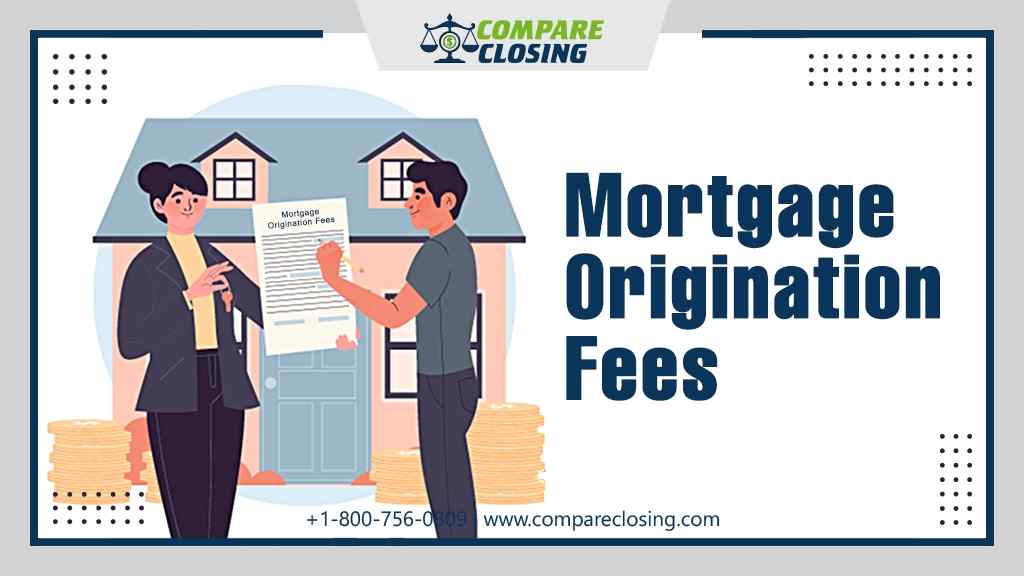Table of Contents
- What Are Netting Escrows & How Does It Work?: The Best Guide - January 2, 2024
- The Secret About Prescriptive Easement: Top Guide 1 Must Know - December 4, 2023
- About Home Equity Loans In Texas And How Can One Obtain It - November 27, 2023
Introduction To Mortgage Origination Fee
An upfront fee that is charged by a lender to process a new loan application is a mortgage origination fee.
This fee is a payment for completing the process of the loan. In the United States of America, these loan origination fees come anywhere between 0.5% and 1% of a mortgage loan amount and they are always in the percentage of the total loan.
At times they are also referred to as discount fees or points, especially when they equal 1% of the amount borrowed, payment for services like processing, underwriting, and funding all come under origination fees.
Knowing More About Origination Fees
An origination fee is like any commission-based payment. The calculation is very simple if a lender charges a 1% fee for originating the loan then they would make $1,000 on a loan of $100,000 and $2,000 on a loan of $200,000.
The origination fee represents payment for the lender’s initial services. If it is a smaller loan then it sometimes represents a higher percentage of the loan amount, because even smaller loans require the same amount of work for the lender as a loan with a bigger amount.
A mortgage calculator can be used to compare the total mortgage fees from lenders. It is ideal to set these fees in advance, or they may suddenly increase at the time of closing. The origination fees should be listed on the closing disclosure.
The Origin Of Origination Fees
During the late 90s to mid-2000s the lenders were earning huge origination fees and yield spread premiums (YSPs) for selling the borrower a higher interest rate.
Predatory subprime lenders would especially target borrowers with marginal credit or unverifiable income.
They would often charge origination fees as high as 4% or 5% of the total loan amount, and earn thousands of additional dollars in YSPs.
After the 2007-08 financial crisis the government passed new laws. These laws set limits on how lenders could be compensated.
It was during the housing boom because of public pressure the lenders were making the most money. Thereafter the origination fees fell to an average of 1% or less.
Ways To Save On Origination Fees
Borrowers can negotiate mortgage origination fees, they can reduce it but cannot expect a lender to work for free. Obtaining a reduced origination fee will usually involve accepting a higher interest rate in return.
Usually, the lender earns their commission more from the YSP rather than the origination fee.
This is executed through lender credits. In a mortgage, they are calculated as negative points because it is a good deal for borrowers only if they plan to sell or refinance within a few years.
If it is on the longer mortgage the total cumulative interest payment will generally nullify what the borrower would have paid in an origination fee.
To get a good deal, the borrower should consider working with one of the best mortgage refinance companies.
The borrower can also negotiate to have the home seller pay their origination fees. And this is only possible if either the seller needs to sell the property on an urgent basis or is having trouble selling the home.
Borrowers can also negotiate with the lender to have the origination fee reduced or waived.
Not only by accepting a higher interest rate, but a borrower can also get a waiver or fee reduction if they have shopped around and can show evidence of a better offer from a competing lender.
Also, if the mortgage is for a larger amount and long term then and if the borrower has good credit scores and a continuous source of income, then a lender may go easy on fees.
It is always ideal to look at what exactly does the origination fee comprise. Some lenders roll in other fees, like application and processing fees, into the origination fees.
If that is the case, the borrower must ask them to have waived off those bundled fees.
Conclusion
An origination fee is a small percentage of the loan amount that is charged by a lender for processing a loan application.
It is safer for a borrower to be better off a higher origination fee in exchange for a lower interest rate because over time the interest savings will surpass the origination fee.
Sometimes the origination fees are negotiable, but reducing them or avoiding them could mean a higher interest rate over the life of the loan.
So that they do not come as a surprise at the time of closing these fees are typically set in advance of the loan execution.
Amanda Byford
Amanda Byford has bought and sold many houses in the past fifteen years and is actively managing an income property portfolio consisting of multi-family properties. During the buying and selling of these properties, she has gone through several different mortgage loan transactions. This experience and knowledge have helped her develop an avenue to guide consumers to their best available option by comparing lenders through the Compare Closing business.





